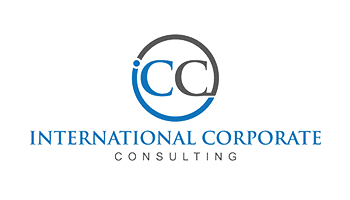REGISTRATION – MANAGEMENT COMPANY
The choice of a more suitable type of company is surely the first step to create an activity in the US. In the US there are three types of capital societies: society type C, society type S and LLC; three types of person societies: General Partnership, Limited Partnership and Limited Liability Partnership. It is possible also to operate by Sole Proprietorship. Our consultants will support you on the analysis and on society type choice suitable to your demands, they will take care of all constitution phases, of achievement of eventual licenses and/or authorization and the will follow you on the subsequent administrative management.
Joint-stock company type C (Corporation)
Similar to the Italian SPA it is considered it is considered, legally and fiscally, as a juridical subject having legal status separated from that of members. Profits and losses are conferred to the company and not to the shareholders. The corporation has a centralization management. The proprietors of the corporations are a team of shareholders that periodically elect a board directors made up of President, Secretary Treasurer, that deals with the main decisions and changes while officers (C.E.O. Chief Executive Officer; C.E.O. Chief Financial Official; C.O.O. Chief Operating Officer) deal with management and daily executive functions.
Joint-stock company type S (Inc.)
Under juridical aspect company type S are the same of joint-stock company type C. Regarding taxes that are lots of differences. In fact, concerning the feral taxation of company incomes, the S company is compared to general partnership, that is an entity which profits and losses pass-through shareholders. This means to be able to avoid double taxation that affects only the shareholders’ income.
LLC
This type of company is compared to the Italian “S.r.l.”. The LLC has interesting characteristics: limited liability for owners and centralization of management but the company incomes pass-through taxation. Therefore it links the operating flexibility and fiscal effectiveness of a partnership (Italian S.n.c.) with limited liability of corporations. The shareholders of the LLC are named members and they can be natural or juridical persons. Instead of shares, quotas are issued and there is no minimum social capital in the corporation but exists two administration levels: members management or managers management. The administration of LLC is named manager. The LLC anyway can be taxed as a C corporation therefore double taxation on profits and dividends through special request.
General Partnership
This company is created when two or more persons reach an agreement to share property and business management (similar to Italian S.n.c.). It doesn’t exist any regular obligation to stipulate a written agreement for the partnership but it is suggested because without it, any dispute among shareholders will be sold in conformity with laws in force in the constitution state. The agreement among shareholders can be limited in time and the taxable income will be at individual level. The shareholders are individually or jointly responsible in a limited way, answering to corporates debts also with its own personal asset.
Limited partnership
This corporation has a more complex structure than a general partnership. The LP is similar to the Italian version of a LP. The Limited Partner benefits from the limitation of responsibility to the affixed capital share. The Limited Partners renounce the power to manage the ordinary business of the company, they are in fact just Investors.
The figure of the General Partner has all the powers to manage the ordinary administration of the social affairs and it is responsible of the social debts with the entire personal income.
Limited liability partnership
This corporation is similar to the General Partnership one, but with a greater protection for the shareholders than their responsibility. It is established with a Certificate of Partnership registered at the competent State offices but not every nation recognizes this kind of partnership and others limit their constitution to professional associations. Tax burden (state and federal) is different both in relation to the type of company and in relation to the residence of the shareholders; therefore it is essential a thorough analysis of the structure and the corporate structure in order to maximize the benefit of a fiscal system certainly fairer than the Italian one.
State and Federal Tax Burden on Corporations:
from $0 to $50,000 = 15%
from $50,000 to $75,000 = $7,500 + 25% on the taxable surplus of $50,000
from $75,000 to $100,000 = $13,750 + 34% on the taxable surplus of $75,000
from $100,000 to $335,000 = $22,250 + 39% on the taxable surplus of $100,000
from $335,000 to $10,000,000 = $113,900 + 34% on the taxable surplus of $335,000
from $10,000,000 to $15,000,000 = $3,400,000 + 35% on the taxable surplus of $10,000,000
from $15,000,000 to $18,333,333 = $5,150,000 + 38% on the taxable surplus of $15,000,000
Federal tax burden on natural persons and on shareholders of LLC and of Partnerships:
10% on annual income up to $9,225 for individual declaration and $18,450 for joint declaration (if jointed).
15% on annual income from $9,226 to $37,450 for individual declaration and from $18,451 to $74,900 for joint declaration (if jointed).
25% on annual income from $37,451 to $90,750 for individual declaration and from $74,901 to $151,200 for joint declaration (if jointed).
28% on annual income from $90,751 to $189,300 for individual declaration and from $151,201 to $230,450 for joint declaration (if jointed).
33% on annual income from $189,301 to $411,500 for individual declaration and from $230,451 to $411,500 for joint declaration (if jointed).
35% on annual income from $411,501 to $413,200 for individual application and from $411,501 to $464,850 for joint declaration (if jointed).
39,6% on annual income from $413,201 for individual declaration and from $464,851 for joint declaration (if jointed).



